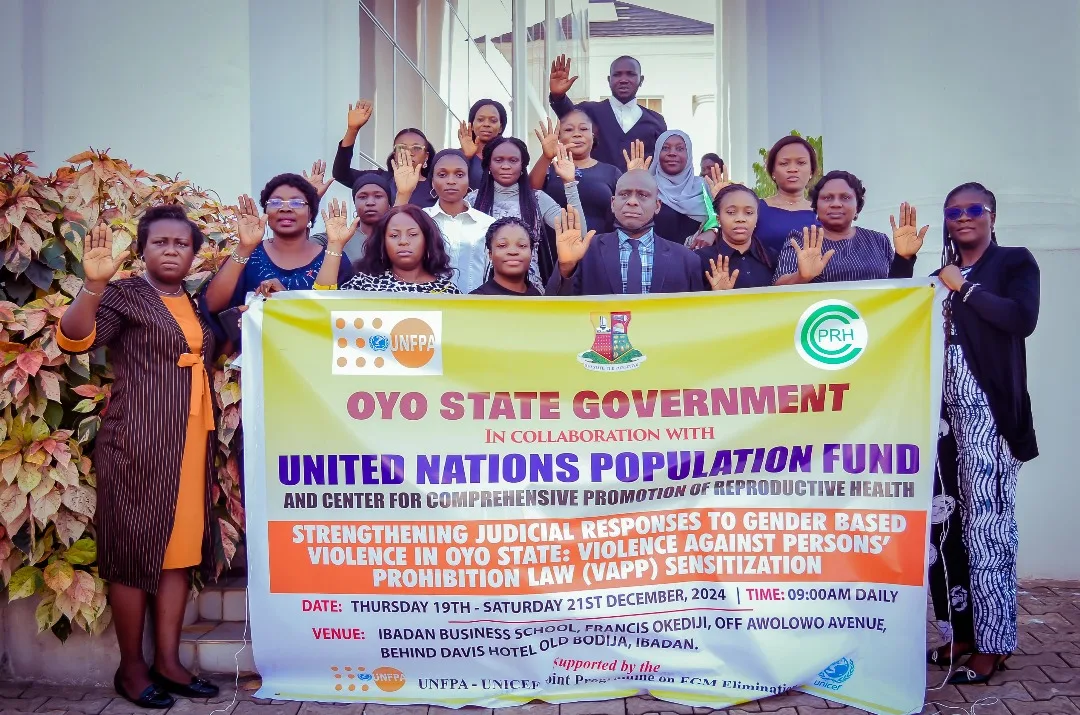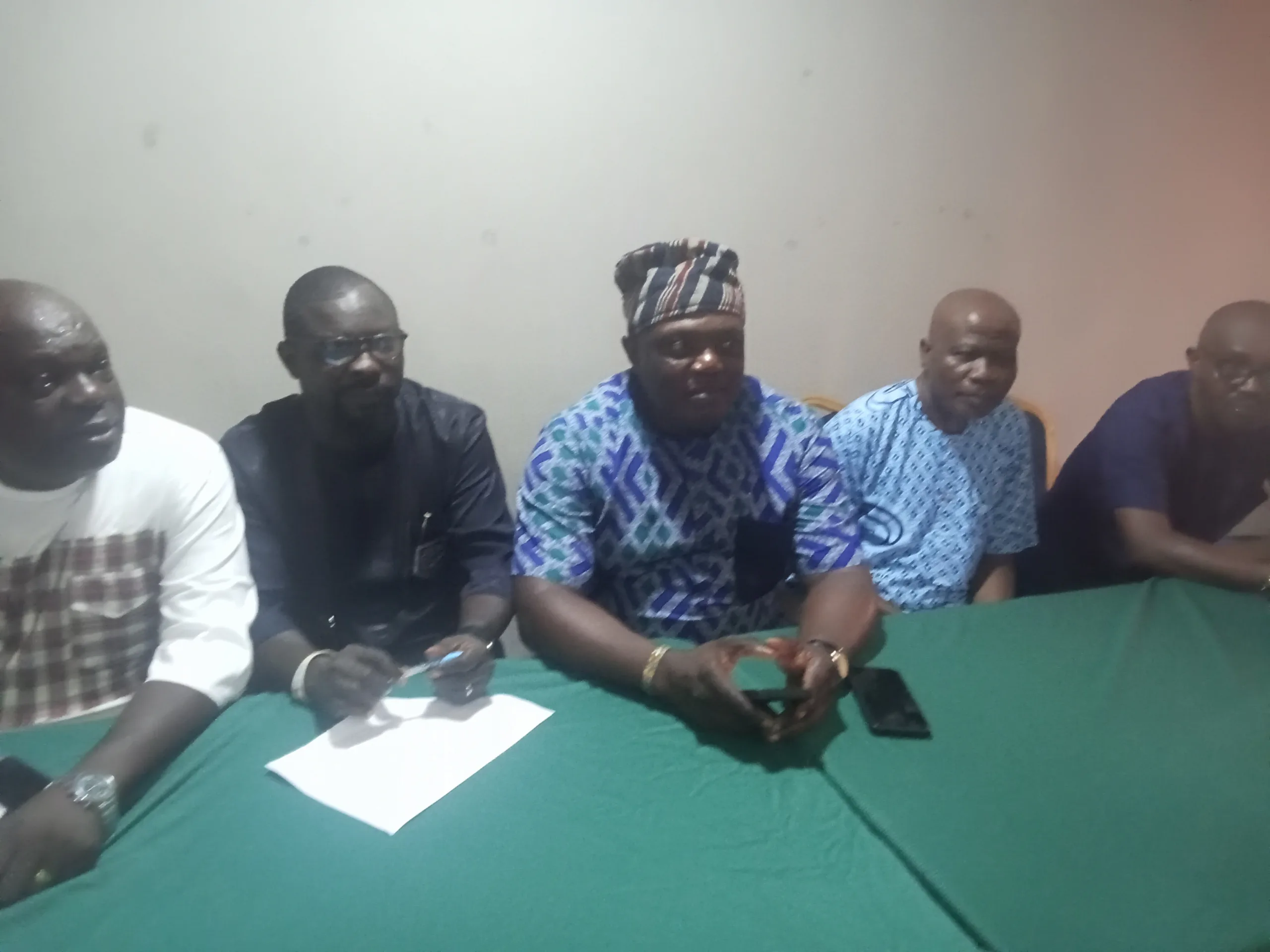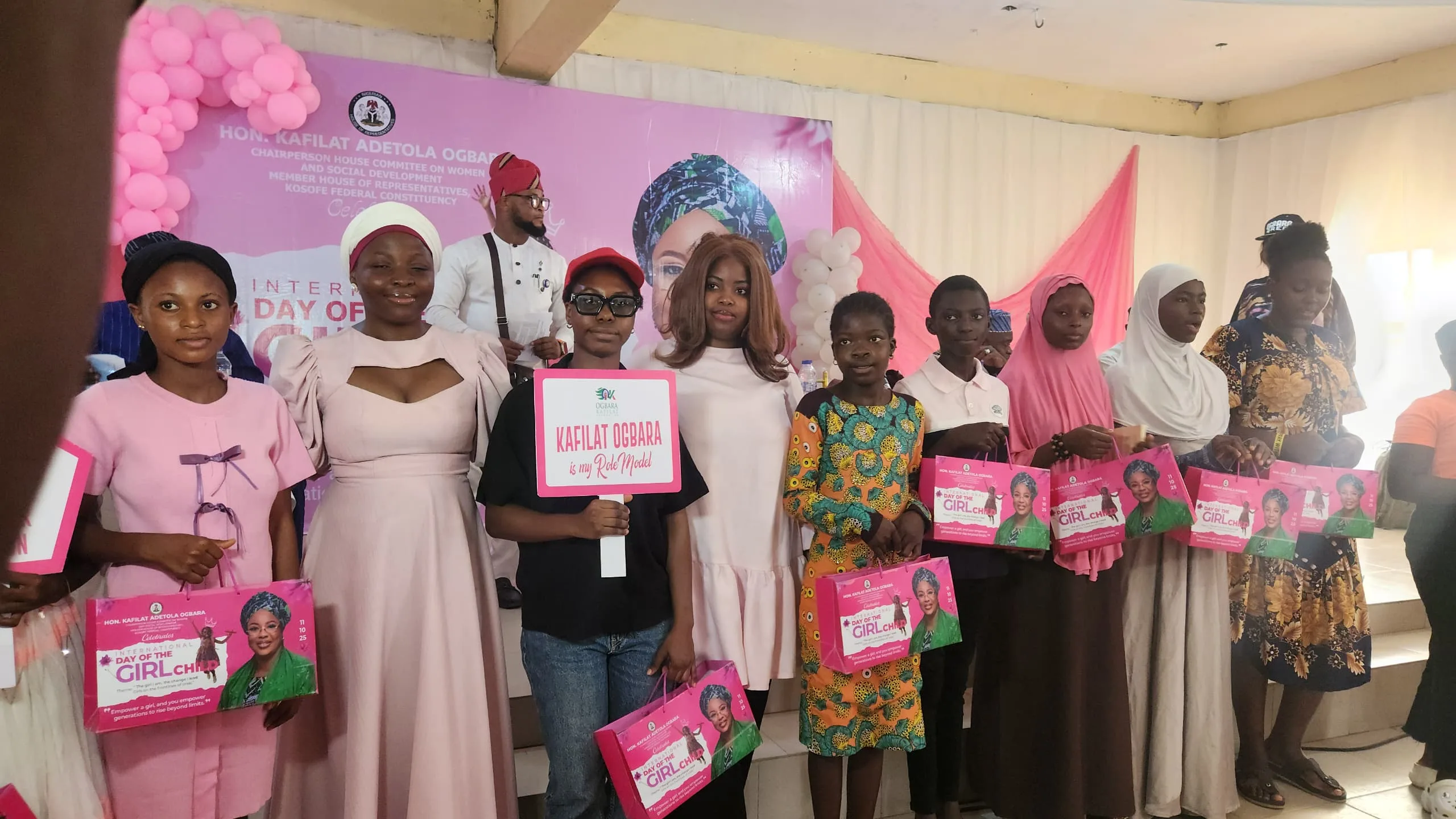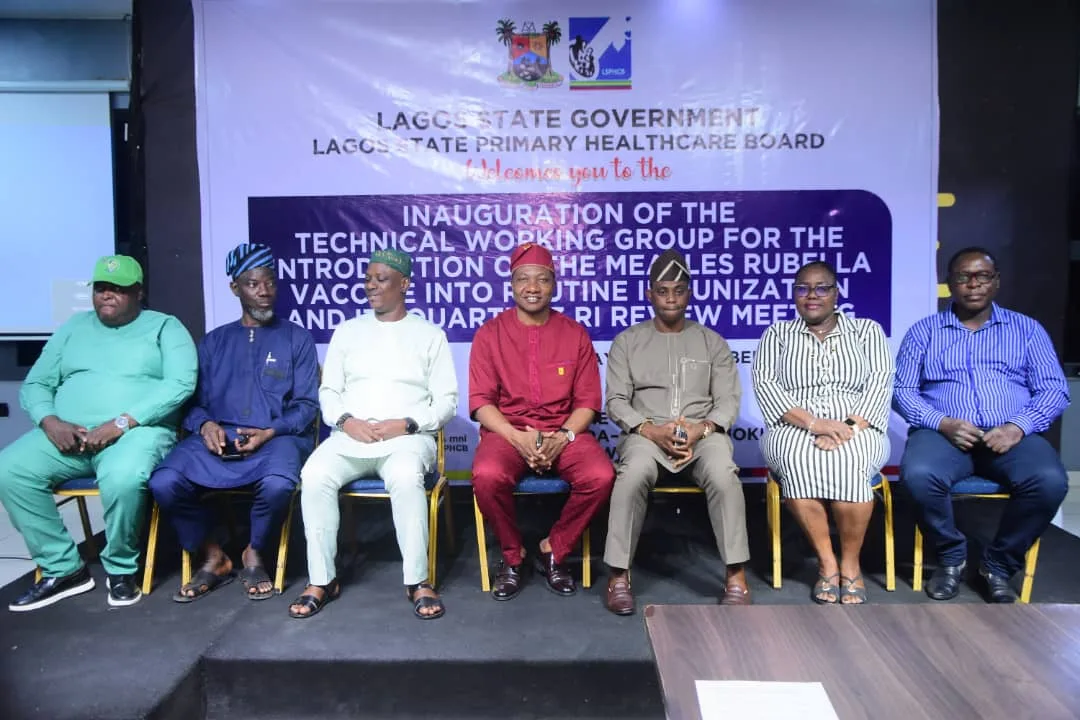By Bisodun Bassey
The United Nations Population Fund (UNFPA), in collaboration with the Oyo State Government and the Centre for Comprehensive Promotion of Reproductive Health at the University College Hospital (UCH), has called on public prosecutors and defence counsels to uphold justice, equity, and good conscience in cases involving human rights violations. This appeal was made during a training workshop held at Bodija, Ibadan, from the 19th to the 21st of December 2024, which focused on the Violence Against Persons Prohibition (VAPP) Law.
The workshop, tailored for Oyo State barristers, provided a platform for participants to engage in case scenarios, deliberate on legal processes, and explore the principles of advocacy and independent legal counsel. These principles, crucial for the fair administration of justice, include due process, filing lawsuits, legal motions, discovery, trial, and appeal.
Sensitisation and Deep Dive into the VAPP Law
Distinguished speakers at the event included Lawyer Modupe Helen Awosemusi and Mrs Balikis Oluwakemi Olawoyin, who sensitised the legal professionals on the provisions of the VAPP Law and its application in addressing sexual and gender-based violence (SGBV). Participants were guided through the law’s framework, focusing on how it protects survivors, addresses human rights violations, and imposes penalties on perpetrators.
The discussions encompassed several key aspects of the VAPP Law, including:
Offences, liabilities, and punishments
Legal proceedings, victim rights, and jurisdiction
Protection orders and the sexual offenders register
Remedies for survivors, including civil compensation
The speakers emphasised the need for a survivor-centred approach in legal proceedings, highlighting the importance of protecting the dignity and rights of survivors.
Challenges in Prosecution
Participants acknowledged several challenges impeding the effective prosecution of SGBV cases. These include:
Cultural biases and stereotypes
Weak institutional support and corruption
Intimidation and threats to survivors, leading to reluctance in testifying
Delays caused by court vacations, adjournments, and improper documentation
Tampering with forensic and medical evidence
Stigmatisation and societal pressures
Lawyer Modupe Helen Awosemusi urged participants to avoid practices that disrupt justice for SGBV survivors. She underscored the importance of understanding offences that attract criminal penalties, issuing protection orders, and providing civil remedies. Furthermore, she highlighted the social and psychological impacts of violence, stressing the need for a collaborative approach among legal actors to ensure justice.
Mrs Balikis Oluwakemi Olawoyin delved into the issue of female genital mutilation (FGM), discussing its complications, psychosocial effects, and high prevalence in Nigeria. According to research, over 30% of Nigerian women have experienced some form of SGBV, with devastating consequences such as psychological trauma, physical injuries, and, in extreme cases, death.
Community Engagement and Advocacy
The workshop concluded with a call for stronger collaboration between legal practitioners, NGOs, and community stakeholders to combat SGBV effectively. Speakers noted that during the COVID-19 pandemic lockdown, cases of violence surged, underscoring the urgent need for proactive advocacy and legal reforms.
The three-day training culminated in the reading and adoption of a communiqué, reflecting the collective commitment of participants to improving the prosecution of SGBV cases and supporting survivors.
Distinguished Participants
Prominent legal practitioners in attendance included:
Barrister Ademubowale Adelabu, State Director of Prosecutions, Oyo State
Chairperson of the Federation of International Women Lawyers (FIDA), Olusola Sulaymon
Senior State Counsel and Deputy Director Mrs Apapa Kate
Deputy Director, SGBV Unit, Mrs Olajumoke
Deputy Director, Ministry of Justice, Mr Akibu Akintola
This landmark workshop marks a significant step towards fostering legal symbiosis among stakeholders and ensuring justice for SGBV survivors in Oyo State.





